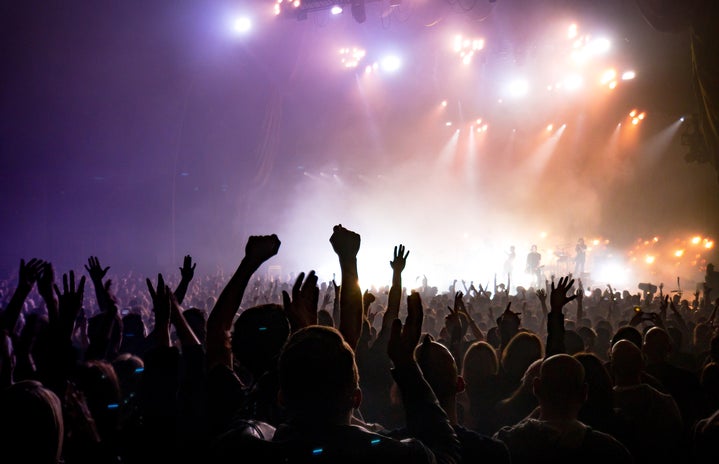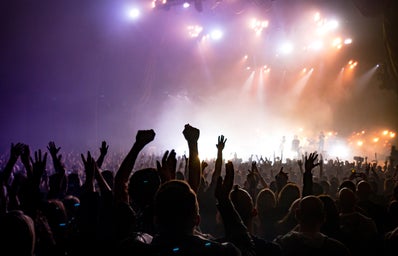Last spring, when the threat of COVID seemed to be dwindling, a bright spot of hope opened up for musicians, venues and fans alike – that live music might just be on its way back in. Artists announced tours, rescheduled previously canceled shows and tickets sold out as people scrambled to get back to it.
However, with the emergence of the Delta Variant – and the tentative nature of the return to normalcy in general – how safe are concerts really? Is it irresponsible to be holding large, indoor stadium shows?
Most venues require proof of vaccination or a negative test result before allowing entry to their events, with some taking it a step further and flat out requiring vaccination, no exceptions. There are still additional concerns, however, as distancing and mask suggestions are not being followed inside venues.
A clear example of this is the Austin City Limits music festival. Spanning the weekends of Oct 1-2 and 8-10, ACL is an annual festival that has drawn huge crowds, featuring artists spanning genres from pop to indie-rock, with headliners including Miley Cyrus and Billie Eilish.
While this festival is an exciting event with a huge array of talent, it could also potentially prove to be a super-spreader event. While the event was held outdoors and organizers required proof of vaccination or a negative COVID test for entry, the crowds were large and almost entirely unmasked.
A notable absence at the first weekend of ACL was Bleachers, the indie-rock band headed by famous producer Jack Antonoff, which pulled out of the lineup due to a COVID exposure in their crew. The band announced that they would be pulling out of five of their scheduled shows.
Bleachers is just one of many musical groups that has canceled shows due to sickness within the band, including the Zac Brown Band and KISS.
This raises another point of concern as live music returns – that the artists and musicians involved are at risk as well as the fans in the crowd. Though the musicians are typically distanced onstage, the nature of performance limits their ability to remain masked.
Still, the general consensus seems to be that the show must go on. So, in the NoVa and DC area, what venues are taking what precautions, and how can you be as safe as possible?
In DC, the 9:30 Club and the Anthem both require proof of vaccination for entry, but are primarily standing room General Admission – meaning that the crowds end up packed together without even a hint of distancing to be seen. Both venues encourage masks, but allow food and drink to be carried into the crowd, meaning that people are unmasked in close quarters while eating or drinking. Beginning Oct 17, venues will allow only vaccination status, not a negative test, as proof to get in.
In Vienna, Wolf Trap is a venue offering outdoor shows. Wolf Trap also requires vaccination, and while their seated tickets are not distanced and crowds can get tight, there is also room to sit further away from the stage in the picnic area, where it’s easier to distance.
If you’re looking to go to live shows, do your research: what requirements does the venue have? How closely packed will you be with your fellow concert-goers? This is a precarious time for musicians and fans alike, and the next few months could prove to show us whether more serious restrictions are needed in the realm of live music.


